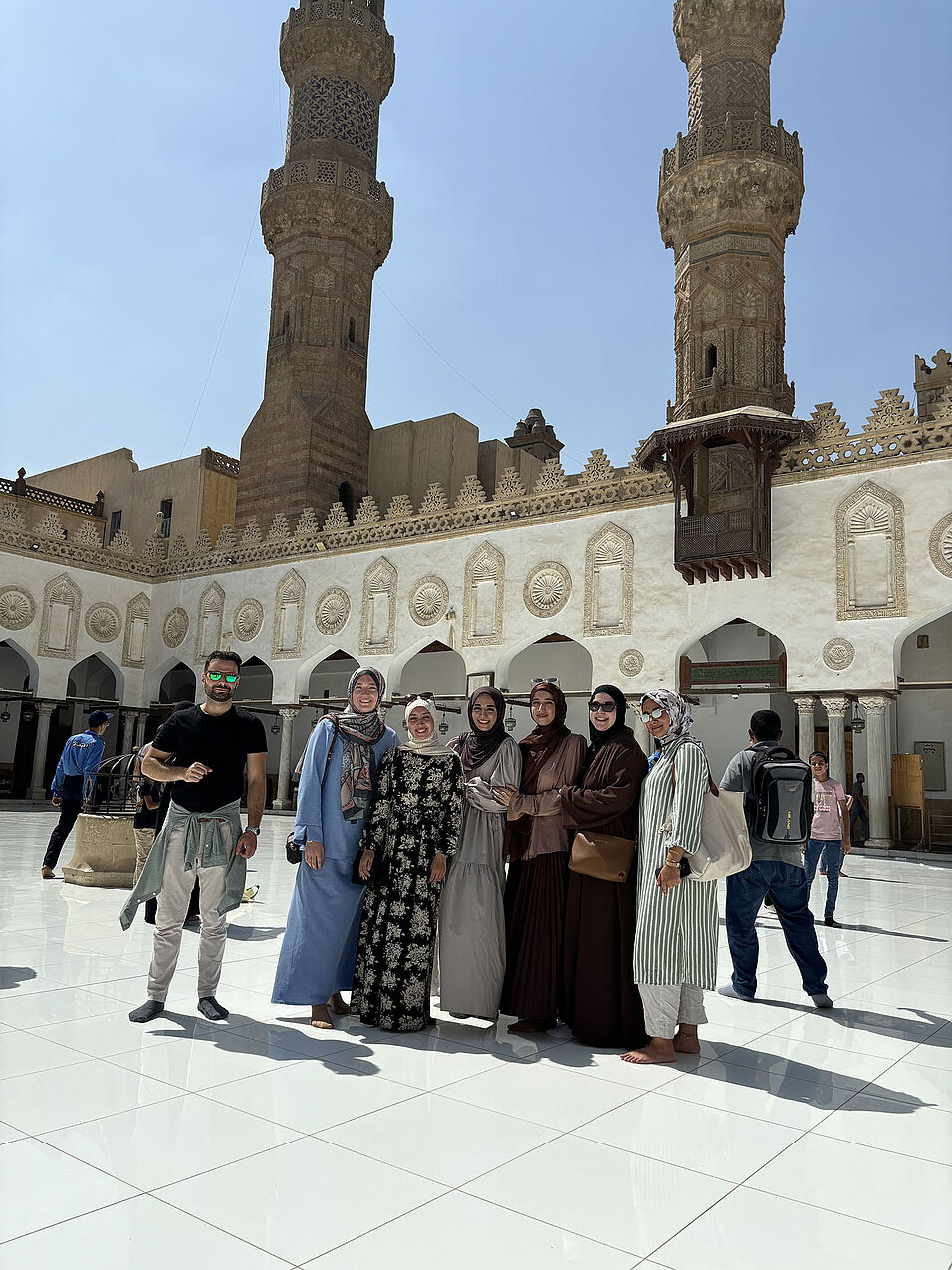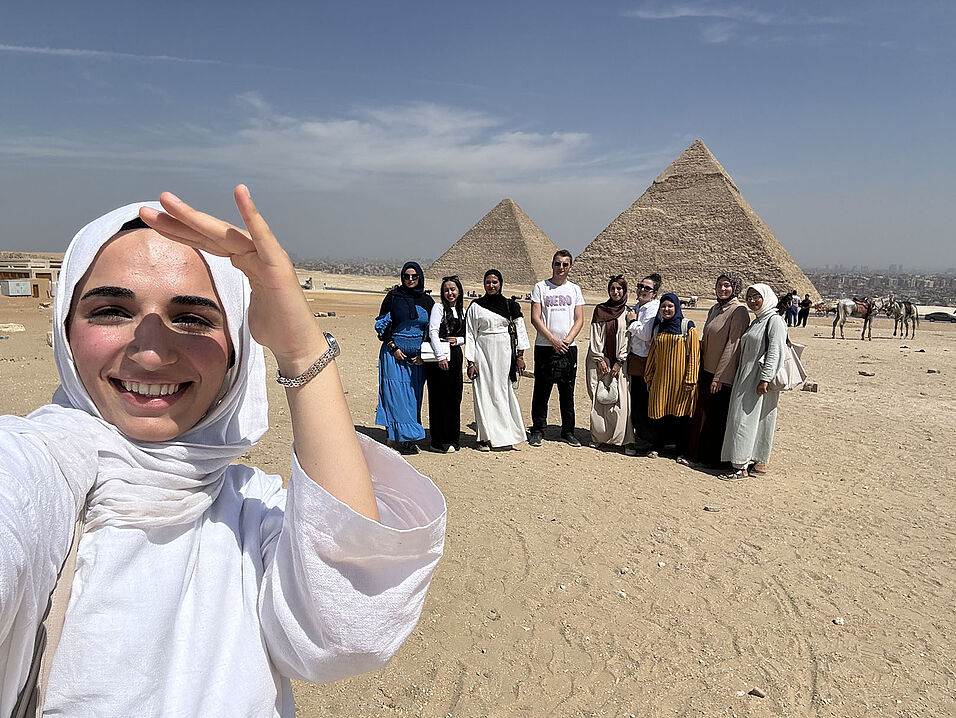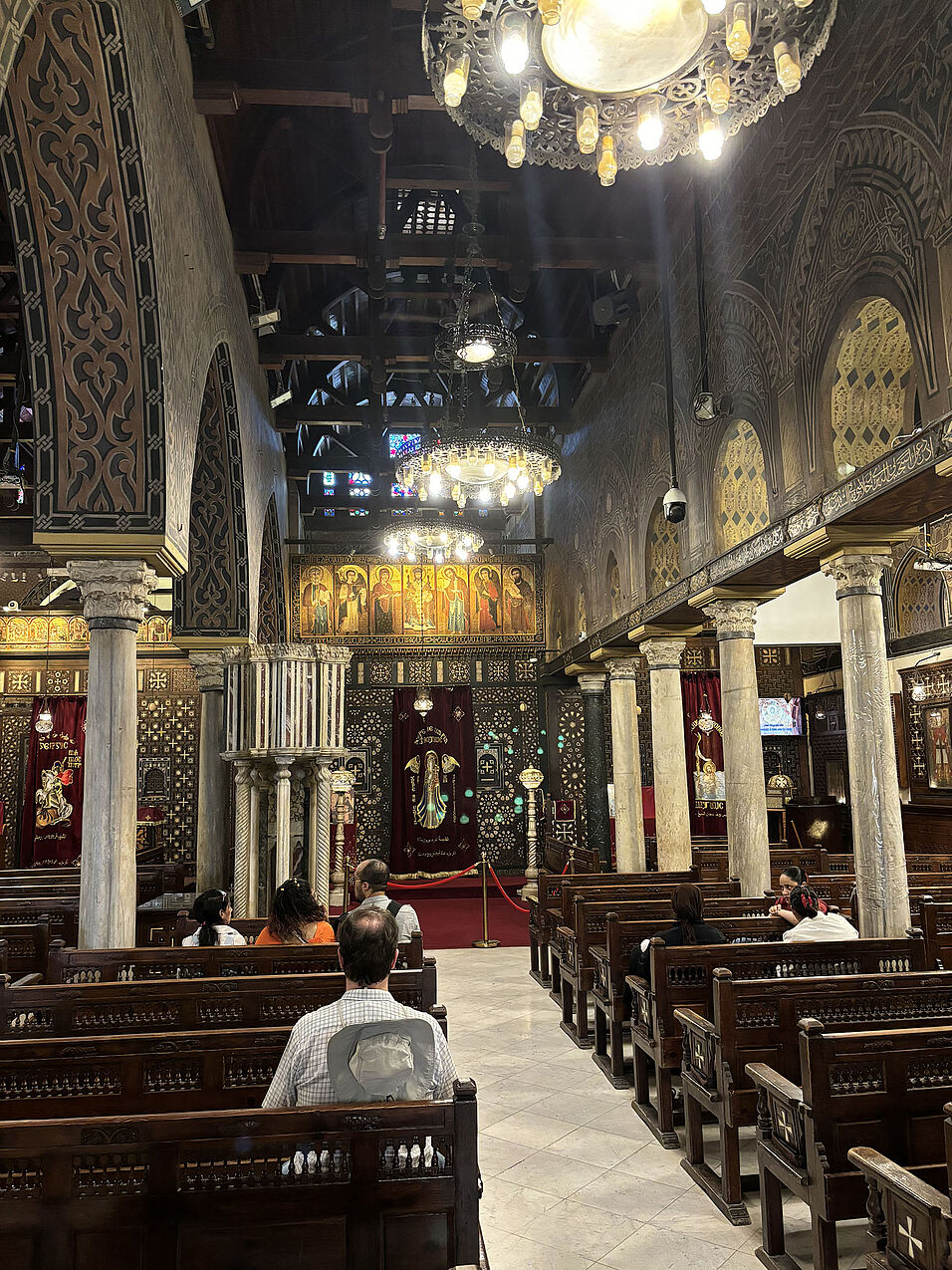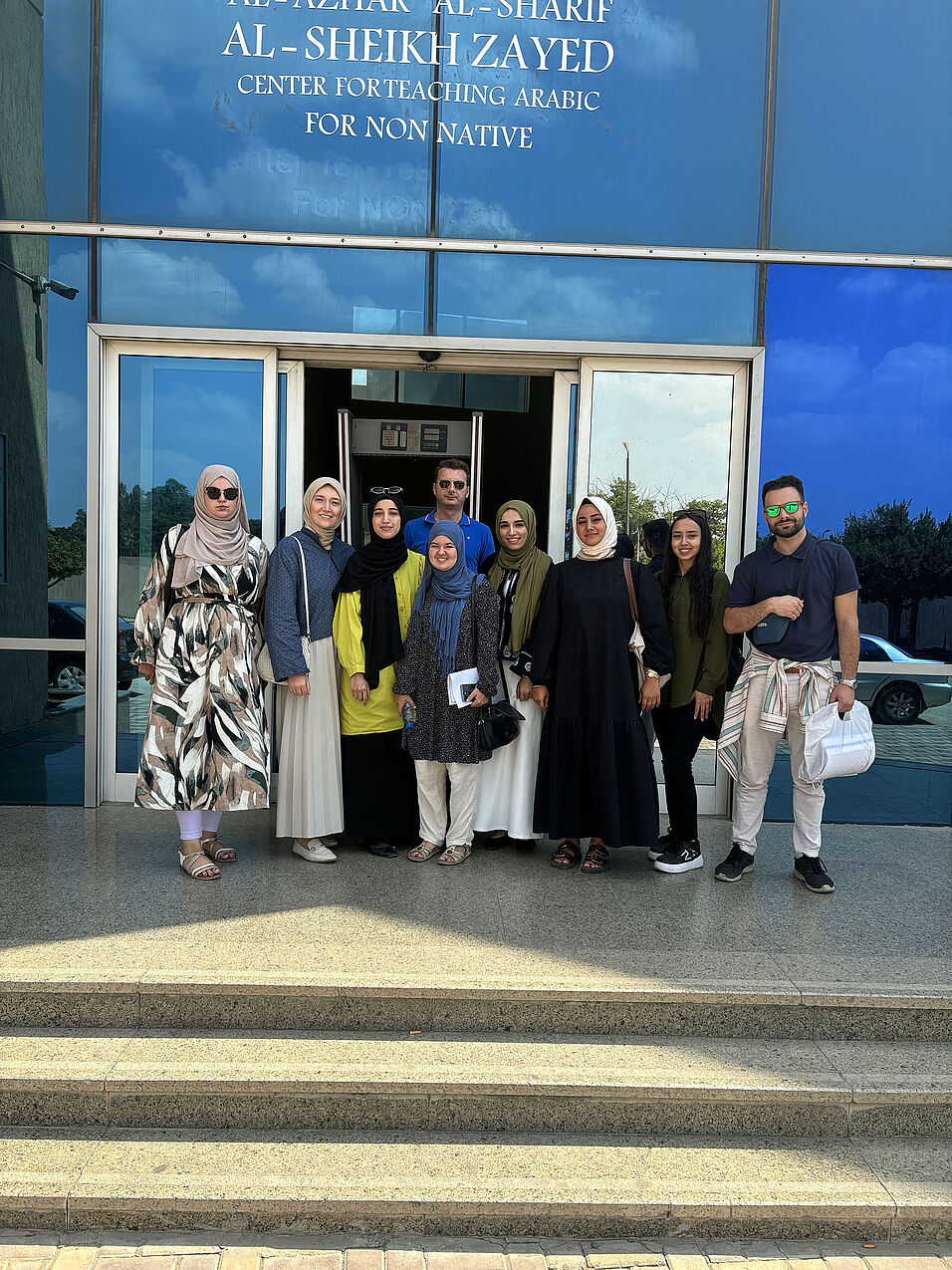Two goals were pursued: Firstly, the students were to demonstrate their Arabic language skills in everyday interaction with the local population and secondly, to familiarise themselves with the country's rich history and culture. After returning to Vienna, it can be stated that both goals were achieved.
The first day of the excursion took the student group to the historic centre of Cairo. There they visited the al-Azhar Mosque, which was built in the tenth century and is now considered one of the oldest universities in the world. The rest of the day was spent in al-Muʿizz Billah Street, named after the Fatimid caliph and founder of the city of Cairo, which is home to numerous mosques, madrasas and other institutions. In this way, it was possible to admire the evidence of the thousand-year history of this city in a very small space. The mausoleum and madrasa of Sultan Ṣāliḥā Naǧm ad-Dīn Ayyūb, the Qalāwūn complex (mosque, mausoleum, madrasa, sabil) and the madrasa of Sultan Barqūq, where Ibn Ḫaldūn also taught, are particularly noteworthy.
The next day we visited the city of Alexandria and the famous Bibliotheca Alexandrina, which is an ideal place for research with its two thousand reading places. On the following days in Cairo, the students attended an Arabic course at al-Azhar University in the mornings, while the afternoons were reserved for visits to numerous Pharaonic, Roman, Christian and Islamic cultural monuments. Of particular note were the pyramids of Giza, the Ibn Ṭulūn Mosque (9th century), the Sultan Ḥasan Medresa/Mosque (14th century), the Citadel of Cairo, the Museum of Civilisations and the Hanging Church (4th century).
The exchange with colleagues from various departments at al-Azhar University and the meeting with the Dean of the al-Alsun Faculty and colleagues from German Studies at Ain-Shams University were particularly informative. Opportunities for cooperation and joint projects were discussed.
To summarise, we were able to gain extraordinary experiences during our excursion, get to know many people, broaden our horizons and become aware of the importance of intercultural and interreligious cooperation.
Written by Bego Hasanović




